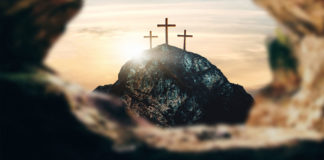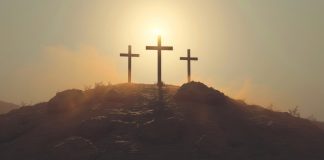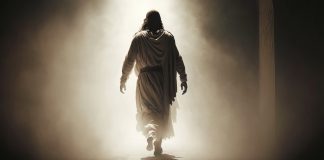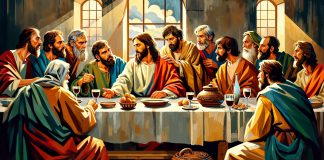Jesus, a better hope
The veneration of saints is a very old tradition in Christianity. Many Christians cannot imagine their religion without appealing to saints for guidance, protection, healing and intercession. Less concerned with theological correctness, people seek the company of saints out of loneliness, hardship, sickness, fear, guilt, or disappointment.
Jesus also loved…
"History shows how surpassingly difficult it is for Christians not to forget Christ," says Professor Chris Green. Forgetting does not mean losing sight of His existence, but rather losing sight of His way of being, His values, and His way of relating to those around Him.
Who is Jesus?
Christians take their name from Jesus Christ. According to World Population Review, there are 2.38 billion Christian adherents across the globe. However, there is also a large portion of the world’s population who know little to nothing about Jesus. Research by Baxter in 2007 found that during that year, 30 million people would die without having heard about Jesus.
Mary’s journey: from inner turmoil to unshakeable trust
Mary was an ordinary person, just like us. The Gospel does not suggest that she had any particular merit, yet her obedience played a pivotal role in a story that would change the world.
Ready for the return of Jesus
"Look, I am coming soon!" (Revelation 22:12) This is a promise whose fulfilment has been awaited by generations of believers who have pinned all their hopes on Jesus's return in glory. But what does "soon" mean? And what should we do to avoid being so preoccupied with the signs that we neglect other essential aspects of our preparation?
Is Jesus Christ the only Saviour of the world?
How can salvation be real and certain only through Jesus Christ when countless people have never even heard His name? If billions of people have no knowledge of Him, isn’t the role of Jesus Christ as the Saviour of the world exaggerated? And are there no other ways of salvation besides Him?
“And forgive us our trespasses…” But what if they persist?
In our Christian experience, we strive for perfection, but we honestly admit we are a universe away from it. Our inability to live up to God’s standards can lead us to feel we can no longer benefit from divine forgiveness, at least not until we prove strong enough not to give into the sins we are battling.
The essence of Christmas
A magical Christmas, a magical evening, magical touch, magical love – people talk about magic when they experience special emotions that they cannot or would rather not explain. "Bring a little magic into your life". This is a saying that resonates extremely well with the expectations of an entire generation.
Suffering evil and loving your enemies
The greatest Teacher I have ever known is Jesus Christ, and one of His most profound teachings is 'Love your enemies'.
Reasons for the cross of Christ: why was His sacrifice needed?
The name of Jesus brings to mind the gift of the incarnate Godhead—their supernatural acts, astonishing wisdom, incomparable goodness, unmitigated innocence, supreme sacrifice, offered salvation, and our only certain hope.
The world seen from the cross
For some of the witnesses to the crucifixion, the seven sayings of Jesus, spoken while He was nailed to the cross, were filled with meaning. Others downplayed or denied their significance. His words still divide people today. But the statements made by Jesus in those few hours are an important key to understanding His message.
In the footsteps of the historical Jesus: benefits and perils
Christianity is either historical or not. It claims that “God acted decisively in history, revealing Himself in external, specific events attested in the Scriptures of the Old and New Testaments.”[1] The most important of these events was the coming of Jesus as the Messiah, the saving Christ.
Paul’s savage class critique in 1 Corinthians
If you’ve ever been to a Christian church, there’s a good chance that you’ll have experienced a unique ritual involving bread and grape juice: the Lord’s Supper, or as we’ll refer to it, Communion. Depending on the denomination, your experience may vary wildly. You may be offered a cup that everyone collectively sips out of, accompanied by a piece of bread. Others will...
What do you do when you reach the end of love?
When I'm tired I can't love! Many times I have lived this reality and even assessed it as the exact end of love.


























